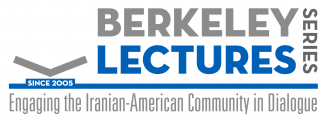Berkeley Lectures Series Presents:
A Lecture by
Dr. Pouya Alimagham
Topic:
The Limits of Empowerment: Women, Gender,
and Revolution in Iran’s Green Uprising
Date: Sunday, June 27, 2021
Time: 11am (PST) | 10:30pm (Tehran) | 8pm (CET)
Place: BLS Virtual Conference Room
گفتارهای برکلی : سخنرانی پویا عالی مقام
موضوع: محدودیت های توانمند سازی، زنان، جنسیت و انقلاب در قیام سبز ایران
تاريخ: 27 ژوئن دوهزار و بيست یک
ساعت: 11 صبح به وقت کاليفرنيا، 8 شب به وقت اروپای مرکزی، 10:30 شب به وقت تهران
محل: سالن کنفرانس های مجازی گفتارهای برکلی
سخنرانی به زبان انگلیسی، پرسش و پاسخ به زبان فارسی و انگلیسی
This presentation explores the role of women in the Green Uprising in Iran in 2009 and how their widespread involvement brought to the fore some of the contradictions in the Islamic Republic of Iran. From the speeches of the main opposition candidate’s wife, Dr. Zahra Rahnavard, and the “poster girl” of the uprising, Neda Agha Soltan, to the never-ending debate over the mandated veiling of women, their presence and leadership during the uprising highlights the limits of their state-sponsored empowerment, and their struggle for more.
 Pouya Alimagham is a historian of the modern Middle East at MIT. His dissertation, titled: “Contesting the Iranian Revolution: The Green Uprising,” was the 2016 winner of the Association for Iranian Studies’ Mehrdad Mashayekhi Dissertation Award, which is presented biannually. The manuscript was published in expanded form with Cambridge University Press in 2020. His other articles and book chapters cover the Arab Spring, Iranian protest music, women in Middle East revolutions, sectarianism, and the psycho-history of post-9/11 discourse. He teaches courses on the modern Middle East, the early Islamic period, and in the fall of 2018, he instituted and taught for the first time, “Modern Iran: A Century of Revolution.” In the spring of 2019, MIT’s School of Humanities, Arts, and Social Sciences (SHASS) awarded him the Levitan Teaching Award—an award that was the result of a student-initiated process.
Pouya Alimagham is a historian of the modern Middle East at MIT. His dissertation, titled: “Contesting the Iranian Revolution: The Green Uprising,” was the 2016 winner of the Association for Iranian Studies’ Mehrdad Mashayekhi Dissertation Award, which is presented biannually. The manuscript was published in expanded form with Cambridge University Press in 2020. His other articles and book chapters cover the Arab Spring, Iranian protest music, women in Middle East revolutions, sectarianism, and the psycho-history of post-9/11 discourse. He teaches courses on the modern Middle East, the early Islamic period, and in the fall of 2018, he instituted and taught for the first time, “Modern Iran: A Century of Revolution.” In the spring of 2019, MIT’s School of Humanities, Arts, and Social Sciences (SHASS) awarded him the Levitan Teaching Award—an award that was the result of a student-initiated process.
Lecture in English – Q&A in Farsi & English
